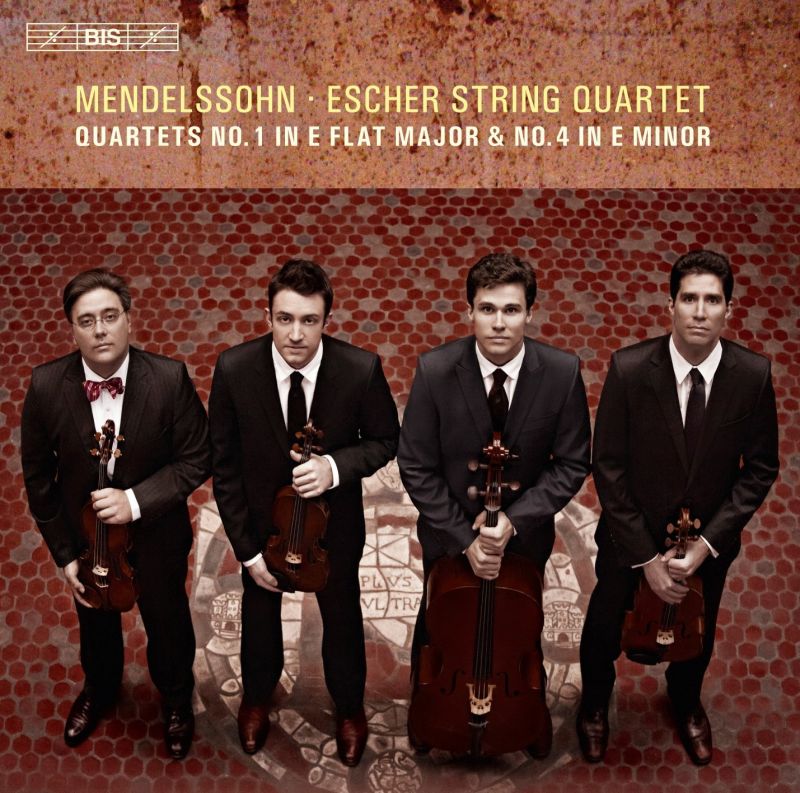MENDELSSOHN String Quartets Nos 1 & 4
View record and artist detailsRecord and Artist Details
Composer or Director: Felix Mendelssohn
Genre:
Chamber
Label: BIS
Magazine Review Date: 08/2015
Media Format: Super Audio CD
Media Runtime: 80
Mastering:
DDD
Catalogue Number: BIS1960

Tracks:
| Composition | Artist Credit |
|---|---|
| String Quartet No. 1 |
Felix Mendelssohn, Composer
Escher String Quartet Felix Mendelssohn, Composer |
| String Quartet |
Felix Mendelssohn, Composer
Escher String Quartet Felix Mendelssohn, Composer |
| String Quartet No. 4 |
Felix Mendelssohn, Composer
Escher String Quartet Felix Mendelssohn, Composer |
Author: Harriet Smith
Pacing can be an issue for the Escher elsewhere too. They take the smoulderingly beautiful slow movement of Op 12 so spaciously that it begins to sound contrived, overblown. The Alban Berg and Quatuor Mosaïques are all the more effective for a slightly plainer approach. And I wonder whether the ‘Canzonetta’ works best when there’s slightly more relationship between the tempi of the outer and middle sections – though there’s no question of the Escher’s virtuosity in the più mosso.
In Op 44 No 2 they find just the right momentum for the first movement and a pleasing clarity of texture. The ricocheting notes of the Scherzo can come to seem a bit violent (it’s perhaps no coincidence that this is a trademark of the Emerson, who have championed the Escher); the Leipzig are notably more subtle here. But put the Escher alongside the Elias and you find in the latter playing that takes more risks, such is the security of the group as a whole. Perhaps the Escher’s new line-up simply needs a little more time, for there’s no doubting the players’ musicianship or technical ability, which are caught with admirable immediacy.
Discover the world's largest classical music catalogue with Presto Music.

Gramophone Digital Club
- Digital Edition
- Digital Archive
- Reviews Database
- Full website access
From £8.75 / month
Subscribe
Gramophone Full Club
- Print Edition
- Digital Edition
- Digital Archive
- Reviews Database
- Full website access
From £11.00 / month
Subscribe
If you are a library, university or other organisation that would be interested in an institutional subscription to Gramophone please click here for further information.




